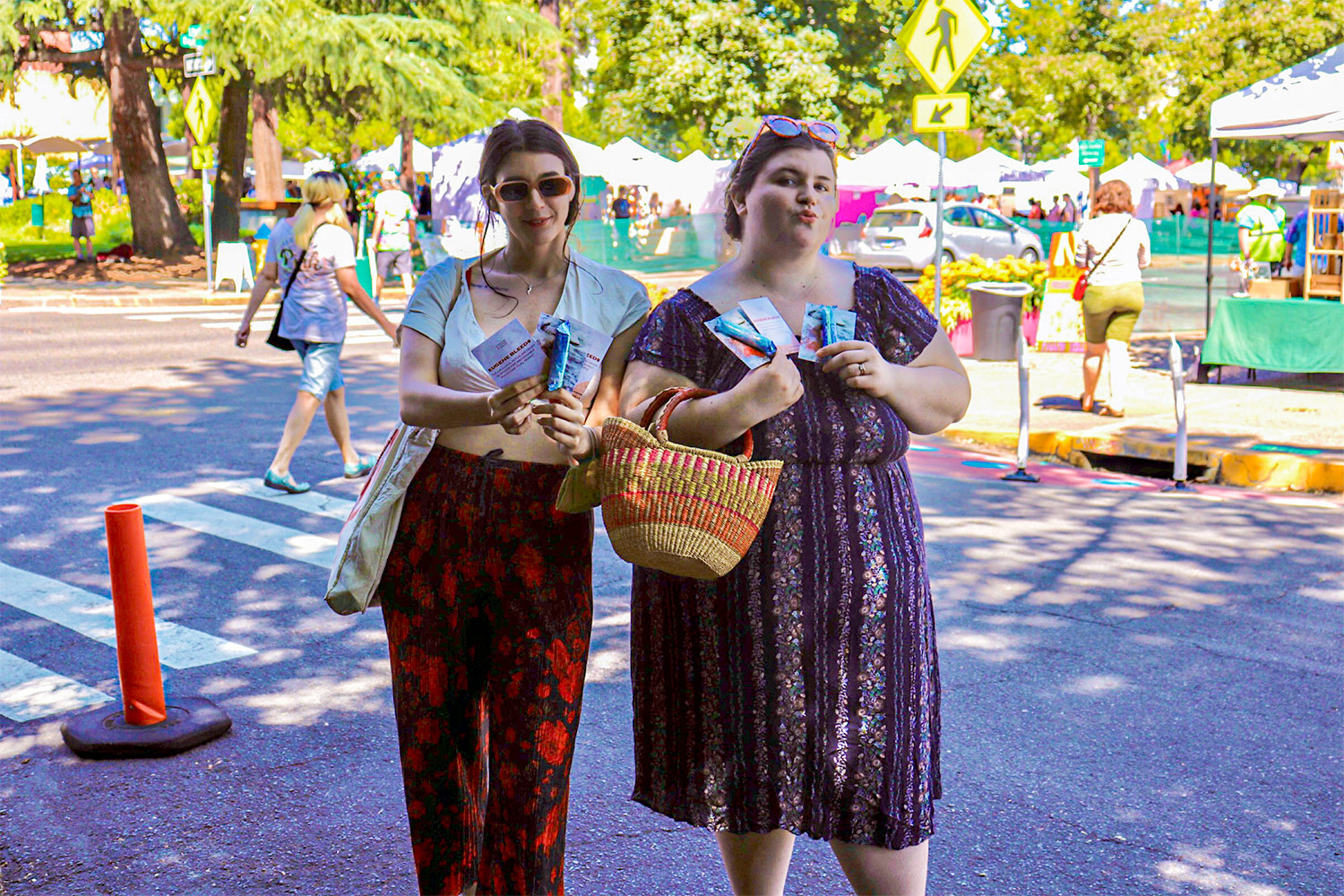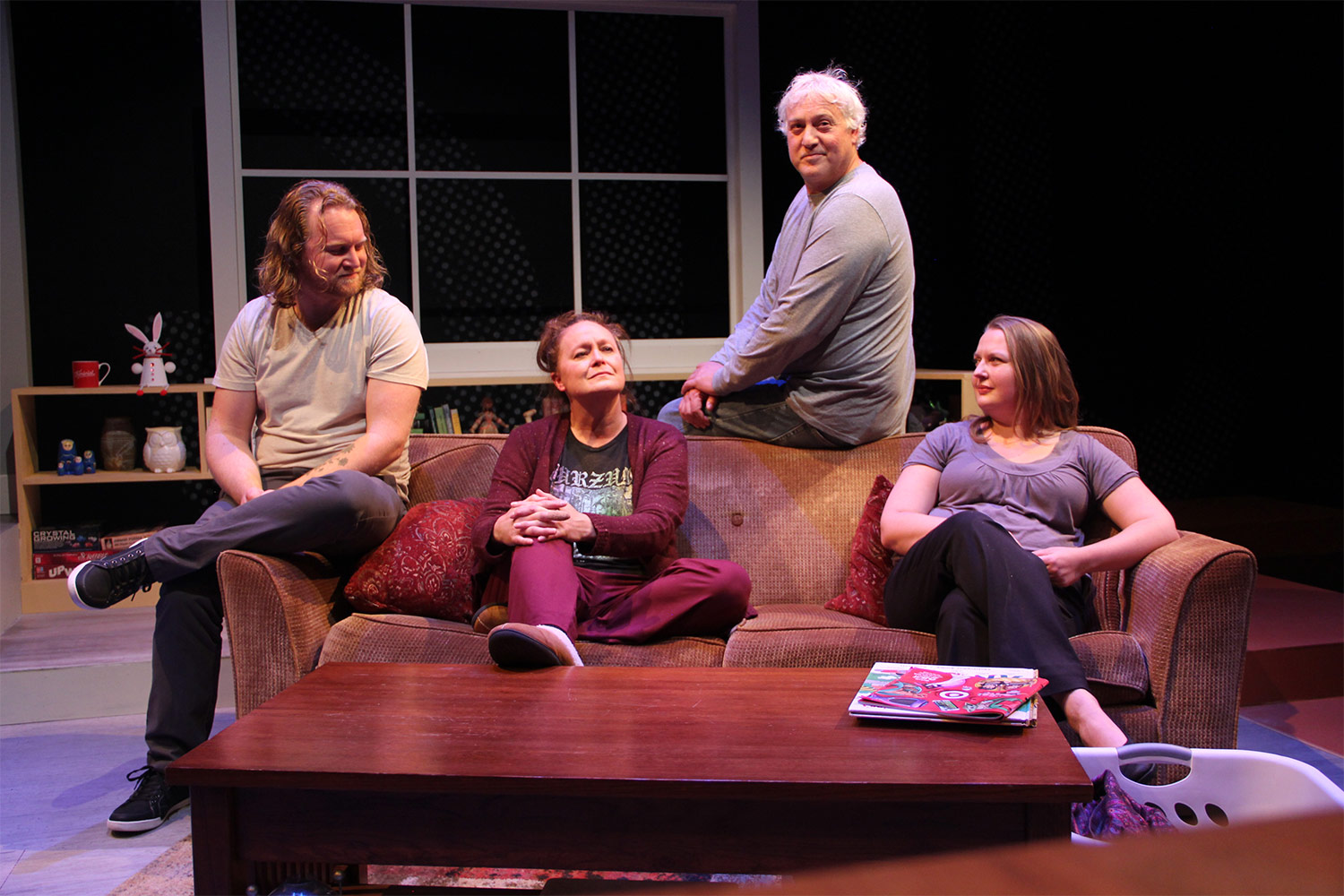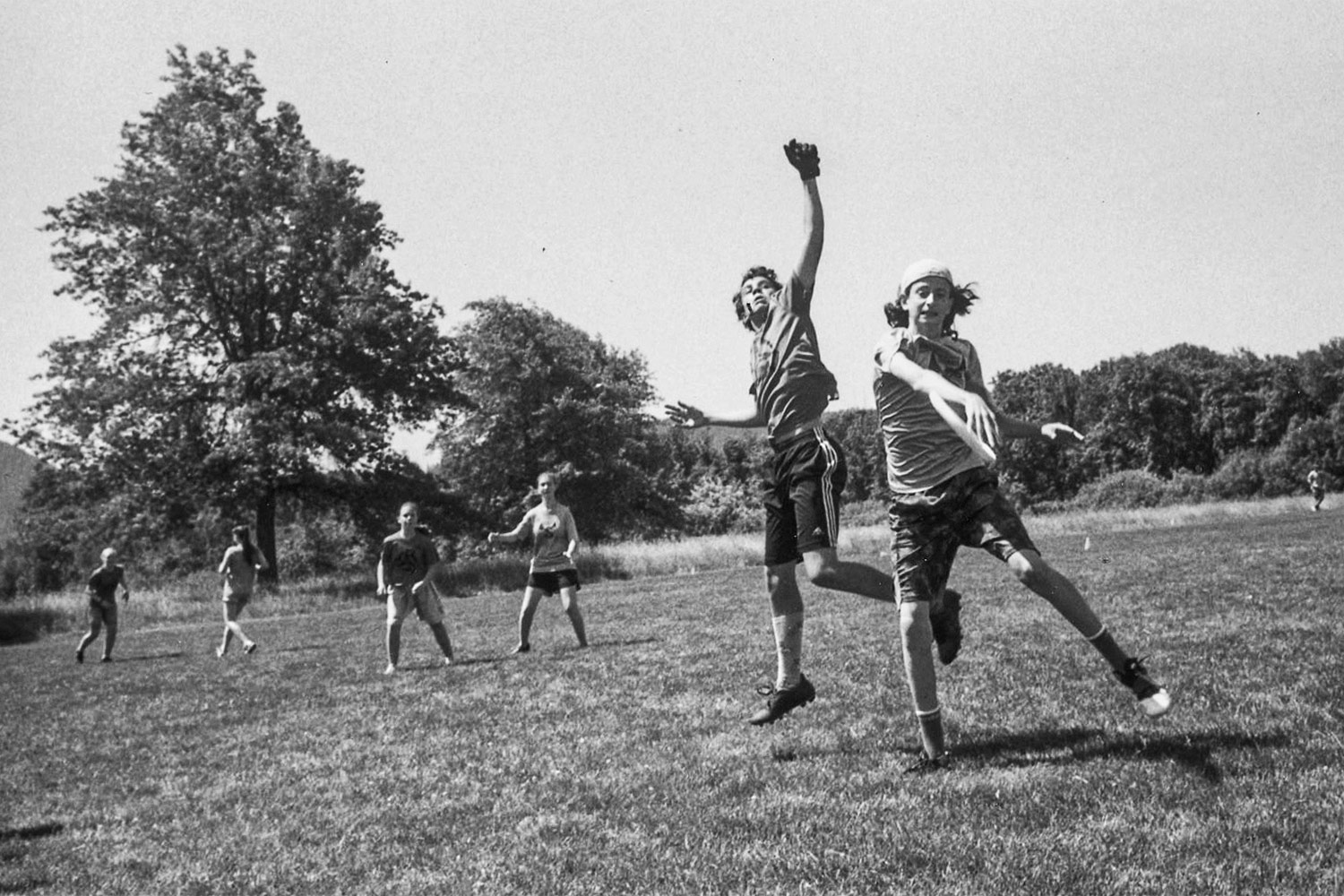It’s that giving time of year, when the festive season invites generosity — and, if you make the right donations by Dec. 31, the tax laws reward giving, at least they do for a small number of us. The Eugene area has a lot of nonprofits. This year in our annual Give Guide we’re focusing on a smaller number of local, and locally involved, organizations that work to better the world in some way, whether by saving the environment, by supporting a healthy arts scene — or simply by offering a place to borrow a needed tool. Most are nonprofits, giving some elite tax filers a deduction.
Do you have a favorite nonprofit we missed? Write a letter to the editor that includes the organization’s name and website, as well as a brief description of its goals. Limit of 100 words per letter; email them to Letters@EugeneWeekly.com by noon Friday, Dec. 24, to run in our final issue of 2021 on Dec. 30.
Finally, we can’t fail to mention the Oregon Cultural Trust’s unique but still little known funding arrangement: Make a donation to any arts and culture organization on the Trust’s list, and then make the same-sized donation to the Trust — and you get a state tax credit in the amount of your donation (up to $500 for individuals, $1,000 for couples filing together). In other words your donation to the Trust doesn’t cost you a cent, even if you don’t itemize deductions. See details at CulturalTrust.org.
Helping people
Acorn Community Cafe
769 Monroe Street, 541-403-7647. AcornCommunityCafe.com.
A nonprofit food resource organization, Acorn Community Cafe grew out of the volunteer group Lunch People, moving into the organization’s cafe space in April 2021. In April 2020, a couple of restaurant workers furloughed by the pandemic began putting together and serving free lunches at parks across town as a response to the increasing food insecurity at the start of the pandemic.
This volunteer operation, founded by Miranda McKeever and Corey Prunier, was made possible by other members of the community who shared the founders’ commitment to providing food to those in need, as well as by local restaurants and farmers. The cafe’s website says running a community cafe serving free food for those in need “wouldn’t be possible without contributions from farms and food producers, artists and skilled freelancers, and other community organizations and nonprofits.”
It’s truly a cafe for the community and by the community. Prunier, the cafe’s chef, has lived in Eugene and worked in local restaurants for 10 years. A vegan for 12 years now, his goal for the cafe is to use Willamette Valley’s bountiful produce to “serve the same quality of food he made at Marché and Meiji, at prices families like mine can afford.”
Much of the funding that makes it possible for community members to eat for free comes from other customers “paying it forward.” Customers can choose to pay forward any amount, and Acorn Cafe makes it known that no amount is too small to give.
With a commercial kitchen, a service counter and a free community pantry, Acorn Community Cafe offers several volunteer opportunities, including a kitchen volunteer position that’s ideal for those with some experience in kitchens, or for high school students hoping to get some cooking experience. — Jenna Comstock
Carry It Forward
PO Box 50121, Eugene, OR 97405. 541-654-0139. CarryItForward.net.
There is no one solution to homelessness, and Lane County has a host of groups working incredibly hard on a plethora of ways to get people housed and fed. St. Vincent dePaul, of course, is a longtime leader in both innovation and aid to those in need. Relatively new but also strong and innovative is Carry It Forward with programs such as SPOT Microshelters, which builds tiny homes and offers workforce opportunities, and my personal favorite, Hope on Wheels. Hope on Wheels takes old donated or purchased RVs, restores them and provides them as shelters to get people off the streets. Once they are done with the RV, they return it for the next person to use. — Camila Mortensen
Eugene Bleeds
Although not officially a 501(c)3 — which makes a difference to the taxman when April rolls around — Eugene Bleeds is nonetheless a worthy grassroots mutual-aid framework worthy of support and is seeking nonprofit status. Founded by Madi Cruz and Noelle Schaefer, the organization offers menstrual care to the community through handmade kits; each kit equaling a cycle’s worth of supplies, ranging from cups and tampons to hygienic wipes, protein bars and even chocolate — any item, really, promoting bodily comfort and wellness, according to Schaefer.
These kits are distributed to community pantries and fridges. Recently, Eugene Bleeds also teamed up with the Whiteaker Community Council, offering kits directly through the WCC’s Wellness Clinics. Donation boxes are set up at 10 small businesses throughout town, and whether you want to donate items while shopping local or host a box at your own business, “our objective is simple,” Schaefer says. “Community access.”
“Each business we’re collaborating with is listed on our website,” they continue, “as well as a comprehensive donation list of items we accept.” And if you’d like to give money directly, financial support is accepted through the Eugene Bleeds website, EugeneBleeds.org. — Will Kennedy
Seeding Justice
P.O. Box 12489, Portland, Oregon 97212. SeedingJustice.org.
There are a lot of nonprofits in this area doing amazing work. Sometimes it’s hard to decide where to put your money, especially in a crazy economy like we have during COVID-19. Let Seeding Justice, formerly McKenzie River Gathering, then MRG Foundation, do some of the deciding for you. The group gives its origin story as this: “Forty-five years ago, our founders gathered on the banks of the McKenzie River in Eugene, Oregon, with a revolutionary idea: that activists, philanthropists, and those working in community should decide, together, how to use their inherited wealth to make an impact on the root causes of social inequity and environmental degradation.” Nearly 50 years later, the organization is still making the grants that help small nonprofits do the good work. — Camilla Mortensen
Springfield-Eugene Tenant Association
1272 Willamette, #110. SpringfieldEugeneTenantAssociation.com.
The pandemic illustrated many of our society’s weak points, from supply chain issues to food insecurity to housing. Tenants in Lane County can at least depend on some help from the Springfield-Eugene Tenant Association (SETA).
Executive Director Tim Morris says SETA is the only local tenant-based hotline available 24-7, and its employees are trained in various renter-related issues, from fair housing to finding renter resources. More than half of Eugene’s residents are renters, he says, so there are a lot of potential clients for the nonprofit. The nonprofit is mostly grant-funded, but individual donations do help the nonprofit cover revenue gaps, as well as distribute its hotline information to tenants in the community, Morris says.
SETA has seen some staffing growth over the past year, he adds. Last year it hired its first employee, and now it’s about to hire a fifth staff member. SETA has recently launched a program where one of its employees meets with a tenant recently evicted due to nonpayment. The employee helps the tenant apply for rent assistance, giving them, as a result of Oregon Senate Bill 278, a 60-day grace period from being kicked out. The employee also helps connect the renter to a food bank and free clothing centers.
The nonprofit’s board of directors and staff are renters, Morris says, so someone with that shared experience helps with tenant morale. “It says, ‘I’ve been there, and we can get through this together.’” About 10 percent of callers to SETA’s hotline are rural residents, Morris says. The nonprofit aims to expand its services outside of the metropolitan area in the near future. Although cash from individuals is put to good use, he says the nonprofit also needs help from volunteers and it can receive donations through BottleDrop and Amazon Smile (if you support Jeff Bezos). — Henry Houston
The arts
Ditch Projects
303 S. 5th Street #165, Springfield. DitchProjects.com.
Ditch Projects is a local art gallery with a national reputation. Begun by MFA students from the University of Oregon in 2008, it is now an artist-run nonprofit gallery and studio space with an emphasis on critical and contemporary art. If it were located in New York City instead of a former warehouse in Springfield, Oregon, it wouldn’t be quite as unique. But in Lane County, Ditch Projects is a standout.
Its founders named the gallery, tongue-in-cheek, after New York City’s famed gallery Deitch Projects. Unlike the New York gallery though, which was named after art dealer Jeffrey Deitch, Ditch Projects makes reference to an actual nearby ditch.
Michael Bray, an art instructor at the University of Oregon, was one of the founding members. He is now co-artistic and executive director along with Chelsea Couch, an artist and educator with Willamette University in Salem. Members take turns showing at Ditch, but the emphasis is on keeping in touch with the larger contemporary art world. In their words, Ditch is “committed to exhibiting experimental works produced by a diversity of practitioners.”
Like other art venues during the pandemic, Ditch Projects has been struggling to keep programming consistent. As of now, their next show isn’t until February, 2022. Supporting Ditch Projects is supporting the presence of world-class contemporary art in the Springfield/Eugene area. — Ester Barkai
Oregon Contemporary Theatre
194 W. Broadway, 541-684-6988. OCTheatre.org.
Known to its friends as OCT, Oregon Contemporary Theatre is the current jewel in Eugene’s theater crown, putting on — at least pre-pandemic, though it returned to live performances in front of an audience this fall — a full season of plays in its intimate but comfortable digs downtown. Founded in 1992 by Randy Lord and Chris Leebrick as Lord Leebrick Theatre Company, OCT has successfully navigated the treacherous waters of producing live theater in a small urban setting that’s littered with the ghosts of past failures.
OCT is the closest thing we’ve got to true professional theater in Eugene. Running the show since 2003, Artistic DIrector Craig Willis combines a strong vision with a solid corporate business background, and OCT has grown steadily in size and quality under his nearly two decades of leadership.
Putting on live theater in a town this size, though, will likely always require patronage. According to its most recent tax filings, roughly half of OCT’s operating budget of around $600,000 comes from gifts and grants, not an unusual ratio for non-profit arts groups. 2020 and 2021 have been tough years for theater everywhere, so fans of live theater should feel free to dig deep into their pockets and bank accounts to help out. — Bob Keefer
Sports
Eugene Middle School Ultimate
PO Box 50644, Eugene, OR, 97405.
You may not be aware that Eugene is an ultimate Frisbee hub. Swing by Century Fields on any reasonably dry day and you’re likely to find games happening. On Saturday mornings the scene is dedicated to kids. For the past six years Eugene Middle School Ultimate (EMSU) has organized mini-ultimate tourneys for local preteens. Teams are organized roughly by school. They compete each weekend in a slate of short timed games, with less emphasis on scorekeeping than participation, camaraderie and fun. Games are mixed gender, open to all physical abilities and experience levels. Everyone gets equal playing time and kids ref themselves. The model is roughly similar to Kidsports, but applied to ultimate.
EMSU’s process is less formal than some youth sports, but it has paid dividends. Some middle school kids move on to play at South Eugene or Sheldon high schools. In Minnesota last summer, Oregon’s girls and boys U-20 teams both won national titles, each one stacked with former EMSU players. EMSU is run by a diverse crew of volunteers, parents and coaches, all joined by a mutual love for the game. Since its founding in 2015, EMSU has grown steadily, expanding its slate of school activities, summer camps and weekend tourneys. To donate, join or get more info, visit the EMSU website or Facebook page or email Conrad@EMSUltimate.com. — Blake Andrews
Saving the environment
Perhaps for some of us, the horrifying time that was the 2020 Labor Day wildfires in Oregon have subsided. For sure some of the land has been slowly restored. But it’s not done. McKenzie River Trust (120 Shelton McMurphey Blvd., Suite 270, Eugene, OR 97401. MckenzieRiver.org) has been out there doing the restoration work. Oregon Wild (5825 North Greeley, Portland, OR 97217. OregonWild.org) and Cascadia Wildlands (PO Box 10455, Eugene, OR 97440. CascWild.org) have been fighting to keep the forests from being over-logged in the wake of the fire. And if you want to support the community itself, check out the McKenzie Community Development Corporation (PO Box 406, Walterville, OR 97489. McKenzieRecovery.org). — Camilla Mortensen
Sheer practicality
ToolBox Project
2235 Adams Street, 541-838-0125. EugeneToolBoxProject.org.
Do you go around the house humming, “If I Had a Hammer?” How about a drill? You may not need to head for that big home and garden store. Eugene’s ToolBox Project is a nonprofit tool-lending library in the Friendly neighborhood.
“In the six years we’ve operated the tool library we’ve seen how important having affordable access to tools can be for new homeowners and renters, in particular,” says Willa Bauman, the ToolBox Project’s operations manager. “We’ve seen businesses start up because they can borrow tools and save on overhead, we’ve seen members making their homes safer and more livable, we’ve seen folks replace their lawn with a garden because they can borrow instead of having to buy the tools they need.”
The organization also co-hosts free quarterly Fix-It Fairs with the city of Eugene, in which people can bring their broken items to be repaired by volunteers.
The ToolBox Project is raising money this year to build a mobile tool library so it can increase access to its tool collection to people outside the Friendly neighborhood. “We’re excited to be able to move around all over Eugene and increase our community’s access to tools with our mobile tool library,” Bauman says. — Bob Keefer
And other deserving groups who reached out to EW
Veterans Yoga Project. Provides Mindful Resilience Training programs for veterans in treatment for PTSD. Local contact: Alexandra Levine, 541-653-0464 or Alexandra.Levine@VeteransYogaProject.org. VeteransYogaProject.org.
The Environmental Law Alliance Worldwide (ELAW) is celebrating 30 years of high-impact wins that have helped protect the climate, advanced environmental justice, defended biodiversity and elevated communities’ work to chart a sustainable future. Find them and donate at ELAW.org/give.
Oregon Just Transition Alliance brings together grassroots base-building environmental justice organizations across the state for racial, economic and environmental justice in Oregon. Donate at OJTA.org.
Eugene Education Foundation is the funding arm of Eugene School District 4J. “Students and their families have suffered during the pandemic, and we are only beginning to see the long-term ramifications of the protracted time away from classrooms,” says Executive Director Dana B. Fleming. “It is going to take a comprehensive, community-wide approach to get our students back up to speed, emotionally and intellectually.”
Find more information and donate at EEFLane.org, or call 541-790-7745.
StoveTeam International. This Portland-based nonprofit provides safe wood-burning cook stoves to families around the world who would otherwise be cooking over open indoor fires, which subject them to serious health and safety issues. StoveTeam.org, 541-554-4638.



